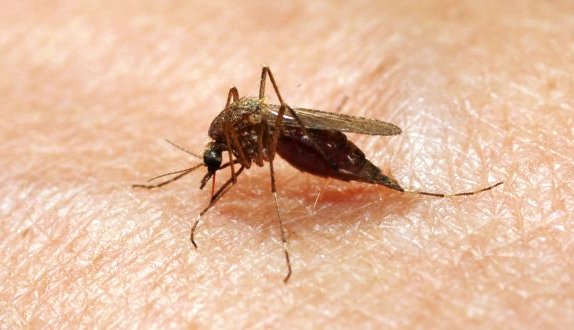EAST LYME, CT — On Sept. 27, Ledge Light Health District (LLHD) announced that mosquitoes collected in East Lyme and from a collection station on the Waterford/New London line on Sept.14 have tested positive for West Nile Virus (WNV), and that mosquitoes collected in Ledyard on Sept. 20 have tested positive for Eastern Equine Encephalitis (EEE).

Previously LLHD announced that mosquitoes collected in Stonington on Sept. 11 tested positive for Eastern Equine Encephalitis (EEE) and West Nile Virus (WNV), and that mosquitoes collected in Ledyard on Sept. 13 tested positive for West Nile Virus.
In all these Stonington and Ledyard cases, the positive mosquito was culiseta melanura, which is known to primarily bite birds but has been known to bite mammals.
Also, LLHD announced that mosquitoes collected in Lyme, Conn. on Sept. 6 tested positive for West Nile Virus (WNV). The positive mosquito was culex restuans, which is known to bite birds and mammals.
Previously this summer, mosquitoes from North Stonington (8/21) and Waterford (8/23) tested positive for WNV.
Positive EEE and WNV mosquitoes are normally expected during the summer months, and their presence serves as a reminder for residents to take standard precautions to avoid being bitten by mosquitoes.
Precautions to avoid mosquito bites:
- Minimize time outdoors at dusk and dawn.
- Be sure door and window screens are tight fitting and in good repair.
- While outdoors, wear shoes, socks, long pants, and long-sleeved shirts. Clothing material should be tightly woven.
- Use mosquito netting when sleeping outdoors.
- Consider using mosquito repellent when it is necessary to be outdoors and always use it according to label instructions. The most effective repellents contain DEET or Picaridin. Oil of lemon eucalyptus is also effective for brief periods of exposure.
- When using DEET, use the lowest concentration effective for the time spent outdoors (for example, 6% lasts approximately 2 hours and 20% for 4 hours) and wash treated skin when returning indoors. Do not apply under clothing, to wounds or irritated skin, the hands of children, or to infants less than 2 months.
Measures to reduce mosquitoes around the home:
- Dispose of water-holding containers, such as ceramic pots, used tires, and tire swings.
- Drill holes in the bottom of containers such as those used for recycling.
- Clean clogged roof gutters.
- Turn over objects that may trap water when not in use such as wading pools and wheelbarrows.
- Change water in bird baths on a weekly basis.
- Clean and chlorinate swimming pools, and cover pools when not in use.
- Use landscaping to eliminate areas where water can collect on your property.
Additional resources for information on West Nile virus and mosquito management can be found at this link.
If you need assistance or advice treating standing water on your property, a member of LLHD’s Environmental Health staff can help. An Environmental Technician will visit your property and provide education on how to prevent and eliminate mosquitoes. Contact Patti Myers at (860) 434-1605 ext. 214 for more information.
Editor’s Note: This article is based on press releases issued by Ledge Light Health District on various dates in September.